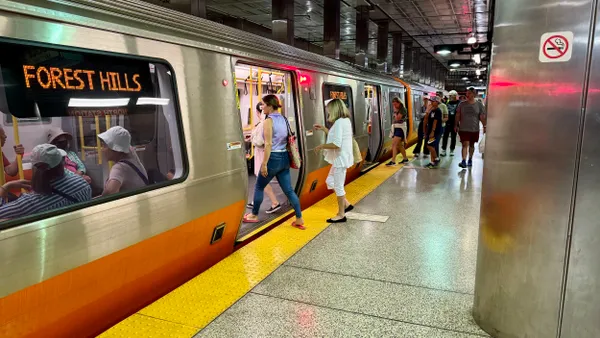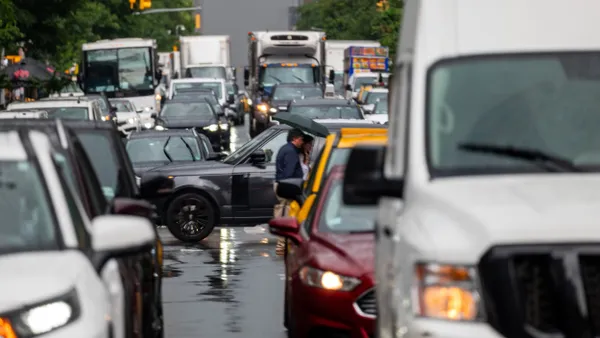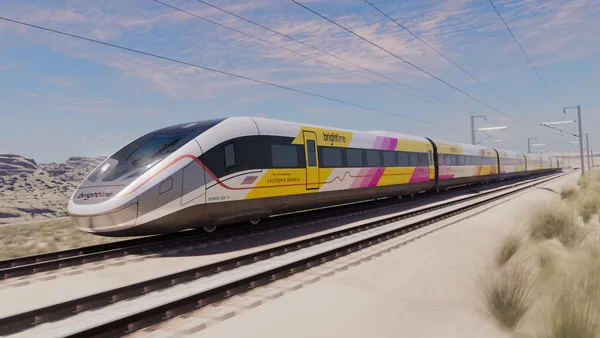Dive Brief:
- The Portland, OR City Council passed a resolution to form the Pricing for Equitable Mobility task force. It will study and recommend strategies to improve mobility and reduce congestion through potential pricing policies on city streets and infrastructure.
- The Portland Bureau of Transportation (PBOT) and Bureau of Planning and Sustainability will create the task force to examine the feasibility of numerous equitable pricing strategies. The multi-pronged approach could include transportation topics including parking, ride-hailing, new mobility modes and curb space management. "We're trying to get people to understand it's not just one thing. It's potentially multiple strategies needed to be most effective at making our trips more predictable as well as reducing congestion and pollution and ensuring access for underserved communities," PBOT Public Information Officer Dylan Rivera told Smart Cities Dive.
- Long-term recommendations are due in spring 2021, but some near-term recommendations are expected to come in by summer 2020 or sooner. "Council told us this can't wait for 2021. We need to do what we can in the coming year... So let's bring those solutions, that relief, to the public as soon as possible," Rivera said.
Dive Insight:
Including the word "pricing" in the resolution and the task force's name for some people immediately implies congestion pricing or tolls. But Rivera stresses that the task force is "not specifically focused on tolls. There's a variety of things we could do."
However, tolls could be one portion of the recommendations and overall comprehensive strategy for improving mobility within Portland. Besides cordon pricing — where drivers pay a fee to enter a certain area — the task force is expected to examine dynamic parking pricing, additional fees tacked onto ride-hailing fares and charging drivers fees based on how many miles they drive.
The state of Oregon already has a pilot program in place for the latter concept, Rivera said. Portland will move forward with its local process while waiting to see how state and federal authorities plan to move forward with potentially adding tolls on the interstates throughout the area.
The task force is charged with keeping equity at the forefront of its research and recommendations. Public outreach and engagement will include populations historically underserved in the transportation space, including low-income residents and people of color. The resolution notes that not only are these populations disproportionately negatively affected by congestion, they're also more likely to live in areas more affected by pollution and the effects of climate change.
Recommendations put forth by the task force are to be in line with Portland's goal of reducing carbon emissions 80% below 1990 levels by 2050.
"We're really at the beginning stages of figuring out what the possibilities are, and that's going to depend on what we hear from the community — what they feel would be most effective and have the most benefit," Rivera said. "It's really a dynamic time in transportation and we're trying to be as smart as we can and try these new strategies."











